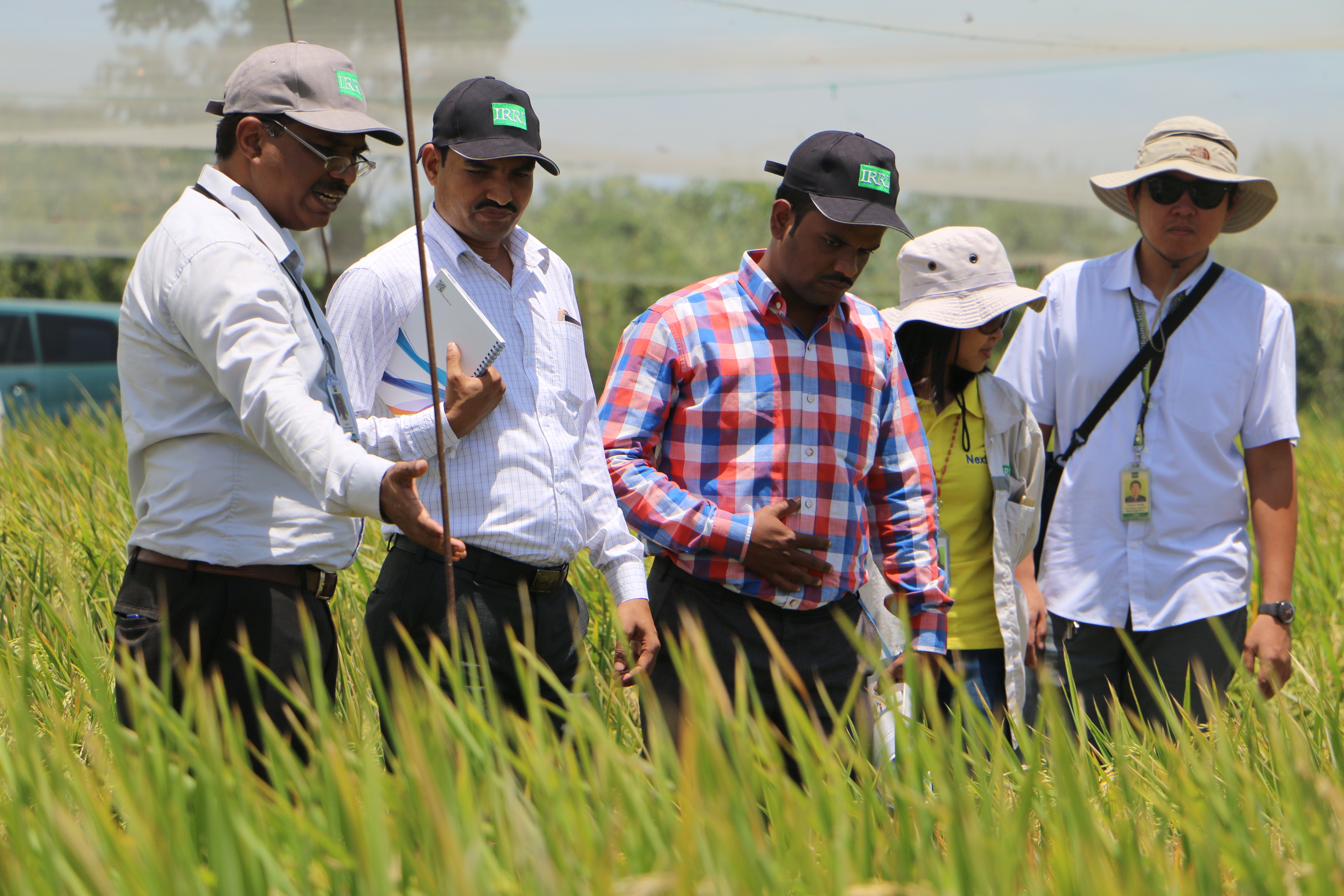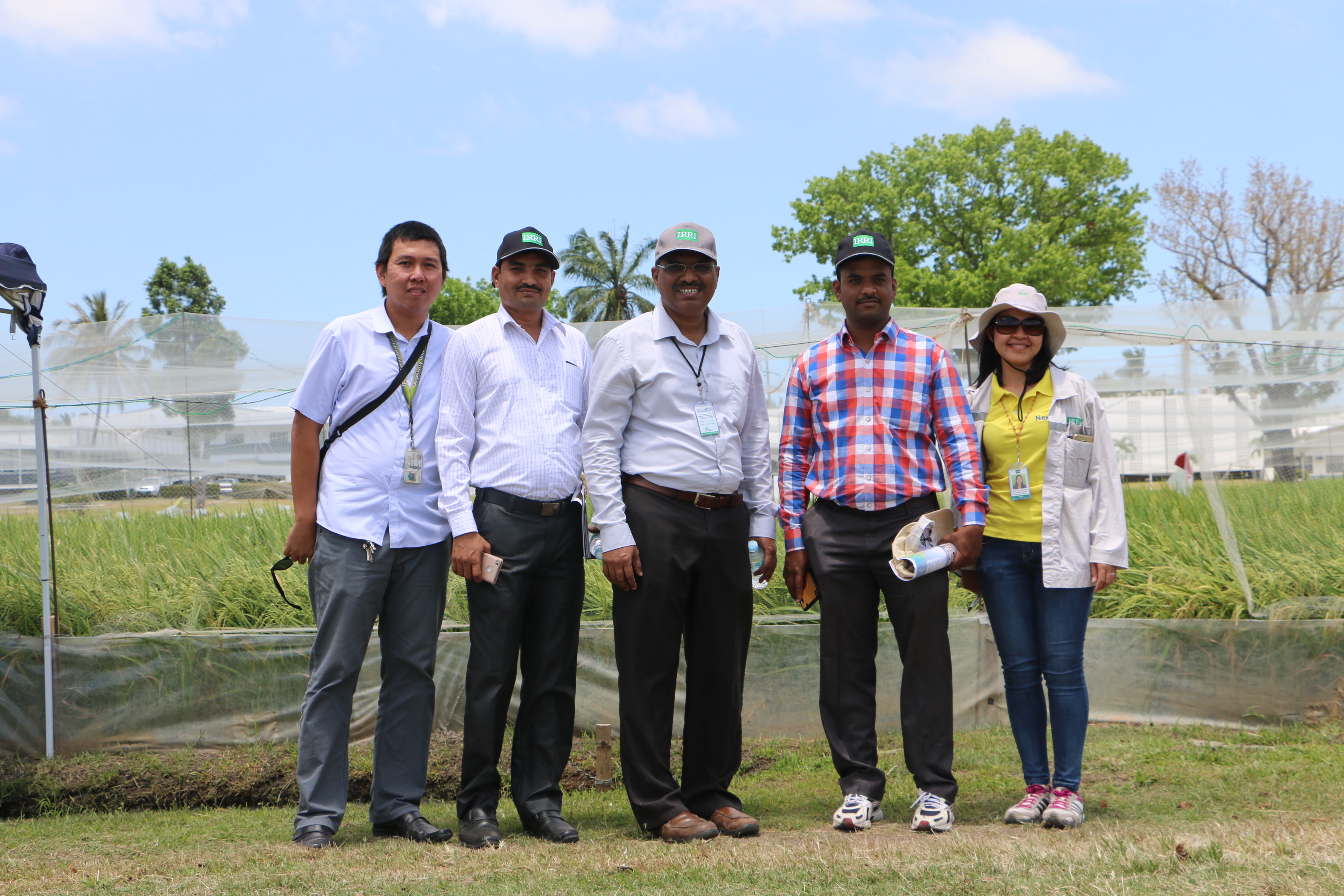LOS BAÑOS, Philippines—One of India’s leading vegetable seed producers is expanding its products to include hybrid rice. The company recently joined the Hybrid Rice Development Consortium (HRDC) that promotes innovation and access to new germplasm and information on hybrid rice technology. The membership-based organization at the International Rice Research Institute (IRRI) helps other organizations collaborate in the research and production of hybrid rice varieties.
“We want to have a long-term relationship with the Hybrid Rice Development Consortium (HRDC) because we have a lot of germplasm and the expertise is here,” noted Mr. Rajendra Krishna, a rice breeder at Kalash Seeds Pvt. Ltd. A leader in the vegetable seed industry, the company is looking at producing hybrid rice, which currently occupies only 5-10% of the Indian seed market.
“Ninety percent of the market is dominated by non-hybrid open-pollinated rice types,” shared Mr. Pravin Naphade, a senior breeder at Kalash Seeds.
Moreover, the government is encouraging Indian farmers to produce more rice through different schemes. Hybrid rice is an option being considered by rice farmers because of its ability to produce higher yield.
Kalash Seeds targets producing hybrid rice with either fine or medium-slender grains for markets in Chhatisgarh, West Bengal, Uttar Pradesh, and other southern states.
“The consortium is trying to develop good products like parental lines or even hybrids,” explained IRRI scientist Jauhar Ali, who also leads the HRDC. “We’ll put these into the HRDC members’ platform so they have an opportunity to look at these materials and take a lead in it.”
First established in 2008, the HRDC currently has 75 members from both the public and private sector, 26 of which come from India.
Mr. Naphade (2nd from left) and Mr. Krishna (center) learns about hybrid rice with Dr. Ali (leftmost) in one of the field trials inside IRRI. Also in the photo are IRRI assistant scientists Erik Jon de Asis (rightmost) and Ma. Anna Lynn Sevilla (2nd from right). (Photo credit: Jonathan Montecillo and Merlito Frias, IRRI).
Mr. Krishna (left) and Mr. Naphade (right) checks the hybrid rice lines in one of the HRDC field trials. (Photo credit: Jonathan Montecillo and Merlito Frias, IRRI).
Mr. Praveen (second from left) and Mr. Krishna (second from right) of Kalash Seeds Pvt. Ltd. sees hybrid rice seed production as the next step for their company. Also in photo: Erik Jon de Asis, Assistant Scientist; Ma. Anna Lynn Sevilla, Assistant Scientist. (Photo credit: Jonathan Montecillo and Merlito Frias, IRRI).
Other news items
SunStar: Recovering rice production using hybrid rice seeds pushed
BACOLOD - The Office of the Provincial Agriculturist (OPA) banked on rice farmers using hybrid seeds to recover reduction in yield brought by effects of climate change as well as calamities and pest infestation this year. Read...
The Nation: High-yielding hybrid rice area to cross 50 percent in three years
LAHORE - High yielding hybrid rice area is going to cross 50 percent in three years from present 25 to 30 per cent paddy coverage, yielding additional two million tons output, said Shahzad Ali Malik, Chief Executive Officer of Guard Rice Research & Services Pvt...
PDI: Bayer bolsters hybrid rice production in PH
As the government aims to reach rice self-sufficiency next year, agricultural company Bayer Philippines Inc. is set to inaugurate a newly installed seed processing unit within its plant in Canlubang, Laguna, next week to increase the production of hybrid rice seeds in...
Symposium tackles Indonesia hybrid rice opportunities
Yogyakarta, Indonesia – The International Rice Research Institute (IRRI) and the Indonesian Agency for Agricultural Research and Development (IAARD), Department of Agriculture brought together key stakeholders in a 3-day conference to tackle solutions toward...
Indonesia to host IRRI-IAARD hybrid rice conference
The International Rice Research Institute (IRRI) and the Indonesian Agency for Agricultural Research and Development (IAARD) will bring together key stakeholders in a 3-day conference to showcase newest solutions toward addressing hybrid rice adoption challenges in...



